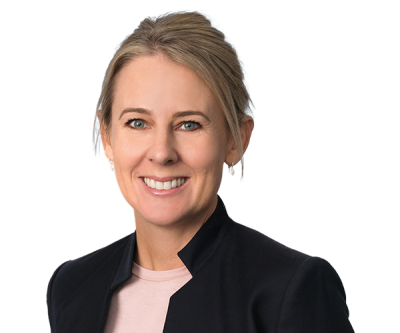
An overview of the types and uses of British Virgin Islands law trusts
This briefing provides a brief overview of the types and uses of British Virgin Islands (BVI) law trusts, covering BVI trusts law, common types of BVI trusts and typical features of BVI trusts.
The British Virgin Islands (“BVI”) is a leading jurisdiction for the establishment and management of trusts, and in the so-called “VISTA” trust offers a form of trust unique to the BVI which is particularly attractive for holding shares in BVI incorporated companies. The BVI has a sophisticated professional trust sector, modern trusts legislation and an effective judicial system. There is a specialist Commercial Court which handles trusts matters, and ultimate appeals to the Privy Council in the United Kingdom.
There are generally no gift, estate, income or capital gains taxes in the BVI for individuals or companies. The BVI therefore offers fiscal neutrality for trusts established in the jurisdiction.
BVI trusts law
The principles of English common law and equity, both with respect to trusts and generally, apply in the BVI subject to variation by local statute. The principal trusts legislation is the Trustee Act (Chapter 303 of the Laws of the Virgin Islands), as amended (the “Trustee Act”) and VISTA, and these are supported by a body of case law from the BVI courts.
Common types of BVI trusts
The following are the most common types of BVI trusts used.
Discretionary and fixed interest trusts
Whilst some settlors wish to confer fixed interests on beneficiaries, that is, they wish to specify in the trust instrument the precise circumstances in which beneficiaries are to be given the income and/or capital of the trust fund, most settlors prefer to give trustees sufficient flexibility to take account of changes in the circumstances of the beneficiaries.
A discretionary trust gives the trustees wide powers to administer the assets and to distribute them at their discretion. The trustees will usually be guided by a letter of wishes from the settlor setting out his or her wishes regarding the manner in which the trust fund is to be administered and distributed. Such letters of wishes can be updated from time to time.
VISTA trusts
VISTA Trusts are unique to the BVI. VISTA enables settlors to establish trusts designed to limit the responsibility of trustees, in the discharge of their fiduciary and other duties, from intervening in the management and affairs of an underlying BVI company whose shares form part of the trust fund and have been designated as within the VISTA regime. As such, a settlor can establish a trust to hold shares in an operating company (or a holding company that owns the shares in the operating company, the latter often a family business) confident that he will not be required, other than in extreme circumstances, to relinquish control over the company and its strategic direction.
The VISTA regime solves a specific problem arising from the ‘prudent man of business’ or ‘prudent investor’ rule generally applicable to trustees of ordinary trusts: the rule imposes a duty on trustees to adopt an investment strategy aimed at safeguarding the value of the trust fund assets, the corollary of which is often to spread financial risks through diversifying investments. The default position provided by the VISTA regime prevents the trustee from intervening in the affairs of the underlying BVI company, effectively dis-applying the ‘prudent investor’ rule which can be in tension with business ventures requiring the taking of significant commercial risk. In using a VISTA trust the settlor can obtain the benefits of the trust mechanism for effective estate and succession planning without giving up effective control (or being subjected to unwelcome trustee interference) in relation to the family business or the assets held in the BVI company.
Non-charitable purpose trusts
It is possible for trusts governed by BVI law to be established partly or wholly for non-charitable purposes. In a private wealth context such trusts may be used to collect and protect family heirlooms or antiques, or to hold certain assets such as the shares in a family trading company or private trust company or to pursue philanthropic purposes that may not fall within the traditional heads of charity. An enforcer is required to be appointed to enforce the terms of a trust in relation to its non-charitable purposes.
Typical features of BVI trusts
Though it is not possible to cover the features of all trusts in this guidance note, the following points are worth mentioning:
Revocability of trusts
A BVI trust may be revocable or irrevocable. If a trust is revocable, the settlor may terminate the trust and regain ownership of the trust fund held on trust on the date revocation takes effect.
An irrevocable trust cannot be revoked, and it may be advantageous in certain cases (often for tax reasons) to use this form of trust rather than one that can be revoked.
The use of protectors
The settlor of a discretionary trust may wish to ensure certain controls are placed around core powers of the trustees, whether dispositive or administrative. This can be achieved by requiring the trustees to obtain the consent of a third party before exercising such powers.
Such a third party is often known as a protector of the trust and the Trustee Act in the BVI expressly recognises this office. The rights and obligations of a protector vary from trust to trust and should be expressed in the terms of the trust instrument. Usually the protector is a close friend, relative or professional adviser of the settlor.
Common powers which are made subject to protector consent include the trustees’ power to appoint new trustees, the addition and removal of beneficiaries and the distribution of capital from the trust fund.
Reserved powers
It is possible for a settlor to reserve certain powers for him/herself (or to confer such powers on others) under the terms of a trust instrument, and the BVI has enacted legislation confirming that the reservation of such powers will not, ipso facto, invalidate the trust. Powers to add and remove trustees, make alterations to the class of beneficiaries, change the proper law and/or forum of administration of the trust and withhold consent from specified actions of the trustees are all expressly recognised as capable of being reserved. It is also possible to reserve powers to direct the trustees in relation to the investment of the trust fund and distributions of income generated by the trust fund.
Private trust companies
One of the trends in recent years has been the emergence of the private trust company (“PTC”). Instead of using the services of a professional trustee the settlor establishes a private company in the BVI to act as trustee of one or more family trusts. The settlor, members of his family and trusted advisers can serve on the board of directors and basically control the PTC rather than surrender such control to a third party service provider. The PTC offers many benefits such as the ability of the settlor or his or her trusted advisers to be closely involved with the trust structure, in-house specialist knowledge and expertise, added confidentiality (where there are acute sensitivities), continuity, flexibility and potential cost efficiencies.
The regulations in the BVI provide for an automatic exemption from licensing for PTCs provided certain conditions are met. The company must only conduct trust or trust-related business and not solicit it from the general public, its registered agent must hold a class 1 trust licence issued by the FSC, its constitutional documents must specify that it is a PTC and this must be reflected in its name, and the company must conduct only trust business that is ‘unremunerated’ or ‘related’ as those terms are defined in the regulations.
PTCs can be established as companies limited either by guarantee or by shares. Where a PTC is limited by shares it is common for a non-charitable purpose trust to be used to ‘orphan’ the PTC so that the shares do not form part of the settlor’s estate.
Perpetuities
Ordinary non-charitable trusts governed by BVI law may exist for periods of up to 360 years, and trusts established for charitable or non-charitable purposes may exist in perpetuity.
Practical uses of trusts
Trusts are generally used by individuals and companies for a variety of personal and business reasons, particularly in the context of estate and succession planning and in the sphere of investment activities.
The following examples outline some of the practical ways in which trusts are used:
Asset management and protection
Settlors capable of handling their own investments may be concerned about the ability of heirs to do so after their death. A trust can be established reserving investment powers to the settlor during his lifetime. On the death of the settlor, either a person nominated by the settlor or the trustees may assume responsibility for the investment of the trust fund.
Settling assets on trust can also serve important asset protection functions, so long as the trust is not established with the intention of defrauding creditors and the settlor does not reserve to himself unrestricted powers to revoke the trust or otherwise recover the trust assets. Transferring assets to a trustee on the terms of a discretionary trust can serve to ensure that the assets are not available to the creditors of the settlor or the beneficiaries of the trust, and that the assets are protected in the event of family breakdown among members of the beneficial class.
Avoidance of probate formalities
Assets owned by an individual usually pass on death in accordance with the terms of a will. If the assets are held in a wide variety of countries it may be necessary to obtain a grant of probate with respect to the will in each country where assets are located. This can be onerous, expensive and time-consuming. In addition, there may be estate duties and taxes payable before the estate can be settled and the assets distributed to the heirs of the deceased.
However, if such assets are settled on trust, they can be held for the benefit of succeeding generations in accordance with the terms of the trust instrument: the death of the individual should have no detrimental consequences for the continued operation of the trust.
Forced heirship
Assets held in a trust can be distributed in any manner that the settlor desires. An individual from a country with rigid legal or religious inheritance laws may, during his or her lifetime, wish to implement a scheme of distribution of assets among his heirs that differs from that prescribed by the laws of his own country. By establishing a trust in a jurisdiction outside that country, and depending on the location of the assets that will constitute the trust fund, the desired distribution plan can often be implemented.
Privacy, confidentiality and anonymity
Trusts are generally created by a private document to which the settlor, the trustees and any protector are the only parties. The trust instrument does not have to be filed with any public body in the BVI, and information relating to the trust is not accessible by the general public.
There are, however, certain limitations in this regard: in particular, beneficiaries of a trust may be entitled to financial and other information relating to the trust. Furthermore, as part of the global initiative to improve tax compliance, the BVI is party to a handful of international agreements providing both for the automatic exchange and exchange upon request to the relevant authorities of other contracting states of certain information held in the BVI by professional trustees and other institutions relating to the trusts they administer or for which they maintain financial accounts.
Prevention of division of assets and maintenance of control over family business
An individual who has built up a sizeable private company may have some children who are interested in the running of the business and some who are not. The individual may wish to benefit the children equally but would not like any of them to be able to dispose of their interest in the family company to non-family members. Such arrangements can be achieved through the use of a trust. VISTA trusts can be particularly useful in this regard, affording a mechanism for holding the business in such a way that it can provide for subsequent generations without the risk of the family losing control over it or being subjected to unwarranted trustee interference in its affairs.
Family assets may also take the form of works of art or real estate which, by their nature, cannot be divided but from which a number of individuals benefit. Such property can be held in trust for the beneficiaries without disturbing the underlying property.
Philanthropy
Trusts are often established as a vehicle for philanthropic giving, either with respect to existing charitable institutions or charitable purposes more generally.
Control of spending
Many individuals may be unfit to manage their own affairs due to age, infirmity or profligacy. A trust structure can allow trustees to help in the management and preservation of wealth by controlling the manner in which trust funds are spent.
Commercial uses
There are also a range of uses to which trusts are put in the commercial sphere, including trusts established:
- for conferring benefits and incentives on employees (eg employee benefit trusts and employee share option schemes);
- as a vehicle for the administration of pension funds;
- as a platform for investment funds allowing investors to spread risk by acquiring limited stakes in a large portfolio of investments (eg a unit trust); and
- to hold security over a borrower’s assets for the benefit of lenders under syndicated loans
- as an ‘orphaning’ mechanism to hold assets ‘off balance sheet’, and in the creation of ‘bankruptcy remote’ structures.
Conclusion
A trust is a flexible arrangement which can be structured to meet the objectives of a settlor. Tax advice should be obtained by the settlor and in some cases the beneficiaries before a trust is established and it is in response to such tax advice that we, as BVI legal advisers, can tailor the terms of a trust to suit the needs of a settlor and those he or she intends to benefit.







